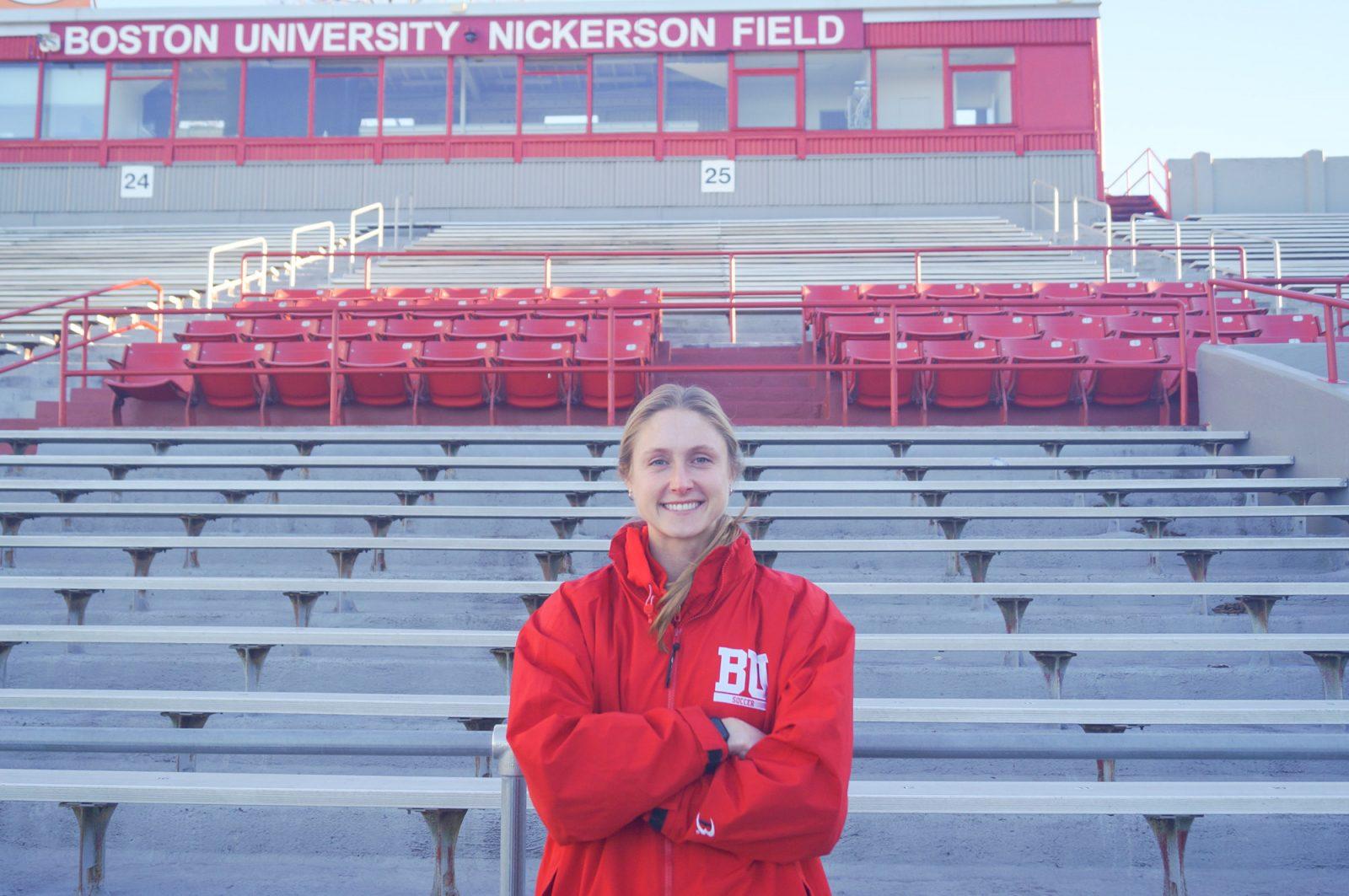It’s been almost three weeks since the Boston University women’s soccer team suffered a heartbreaking loss to the defending champion University of Southern California in the first round of the NCAA Tournament. It wasn’t the ending the Terriers were expecting, especially coming off an undefeated conference season and playoff run.
‘We saw our season going further, like maybe the Sweet Sixteen, which was our goal,’ senior back Elizabeth Speck said. ‘I still have nightmares about it.’
Yet, despite their unexpected first-round opponent and failure to proceed to the second round of the NCAAs, the Terriers’ season should not be viewed as a disappointment. In fact, the 2008 Terriers should be remembered as a team that lived up to its potential.
Early in the season, the Terriers struggled with a difficult schedule and unexpected injuries. Promising players such as Jamie Schiffer, Brittany Heist and Tiya Gallegos were lost by season’s commencement to various injuries. While trying to readjust to their lineup changes, the Terriers faced Top-25 opponents in Boston College, the University of Minnesota, the University of Connecticut and the University of Wisconsin-Milwaukee. Through two months, the Terriers were treading water, just barely above the .500 mark.
Terrier fans should have expected the tough start. BU coach Nancy Feldman regularly schedules a difficult opening stretch for her teams.
‘The only priority at the beginning of the year is not to win that game ‘-‘- it’s to set in motion how to be the best at the end [of the year],’ Feldman said. ‘Do I want to win every game? Absolutely. But I’m not going after winning against [early season opponents] as the only priority.’
Still, the Terriers exhibited sloppy play early in the year, losing games they should have won. The Terriers blew a 1-0 lead against Princeton University on Sept. 5 with 14 minutes left in regulation. All but two of the Terriers’ first five losses resulted from the opposition scoring in the second half. The Terriers would be recognized as a team incapable of stopping goals late in the game.
Meanwhile, the offense showed it was capable of creating pressure and generating shots ‘-‘- the problem was getting those shots into the net. In the first seven games, the Terriers never scored more than one goal in a game and were shut out four times.
The team hit a low point at the Minnesota Gold Classic Sept. 19 to 21, dropping consecutive contests to UW-Milwaukee and Minnesota. More disturbing to Feldman and the Terriers than the games’ final results was the level of BU’s play, which, according to Feldman, was less than satisfactory.
The low point, however, provided the Terriers a chance to adjust, and the team’s post-trip meeting acted as a turning point for the rest of the season
‘After the Minnesota trip, we did some self-analysis and the team was ready to hear it because they knew what they were doing wasn’t working,’ Feldman said. ‘We had to fully commit to both defending and attacking. Not everything was going to be perfect, but we had to keep getting after it.’
‘ The steps taken after the Minnesota trip proved to be essential as the Terriers began conference play. The Terriers tore through the University of Vermont and Binghamton University with back-to-back four-goal efforts. They got late victories with second-half goals against the University of Maine and the University of New Hampshire. Despite the scoring fluctuation, the Terriers were developing a rhythm.
The offense stopped relying solely on their drive to the corner-and-cross tactic. It molded to its opponents defense and broke down the opposition’s weaknesses. Led by senior midfielder Marisha Schumacher-Hodge, who scored all four of her goals in conference play, the Terriers thrived. The offense scored 15 of its 24 goals in the regular season against conference opponents.
The offense was able to perform well due to the strong defense that began working in concert with the attack. The Terriers, headed by Speck and junior Casey Brown, only allowed three goals in the team’s final seven games. The defense allowed the occasional late scare, but was backed by sophomore goalkeeper Janie Reilly, who provided additional protection.
‘We started playing as a team,’ Speck said. ‘Everyone connected and played all the same roles that allowed us all to play everywhere.’
The Terriers clinched the conference championship for the second straight year, becoming the first undefeated and untied America East team since the 2000 Terriers. In the playoffs, BU had ultimate control of the games against Maine and Stony Brook University to come away with the America East title.
From there, the Terriers’ fate was in the hands of the NCAA Tournament selection committee. Hoping for a regional matchup against such opponents as BC or UConn, the Terriers were disappointed to find out they would travel to Provo, Utah, to play USC in the opening round.
‘Initially, I was angry because I was like, ‘Wow, I don’t really know if this is fair,” Speck said of being sent to Provo for the opening-round game. ‘By then, all of us were like, ‘We believed in ourselves, we believed we could compete with anybody and we’d like to show the NCAA we could compete with the defending champs.”
The Terriers lost in Utah by a score of 2-0, but the season, according to Feldman, was not a loss.
‘We played the best soccer we were capable of, and we achieved our goals based on our performance,’ Feldman said in reflection of the season as a whole. ‘The wins and losses take care of themselves. I think eventually we will reach our goal of getting further in the NCAA Tournament if we keep developing into a better program.’





















































































































